Best B-Schools: A complete T25 MBA tier list
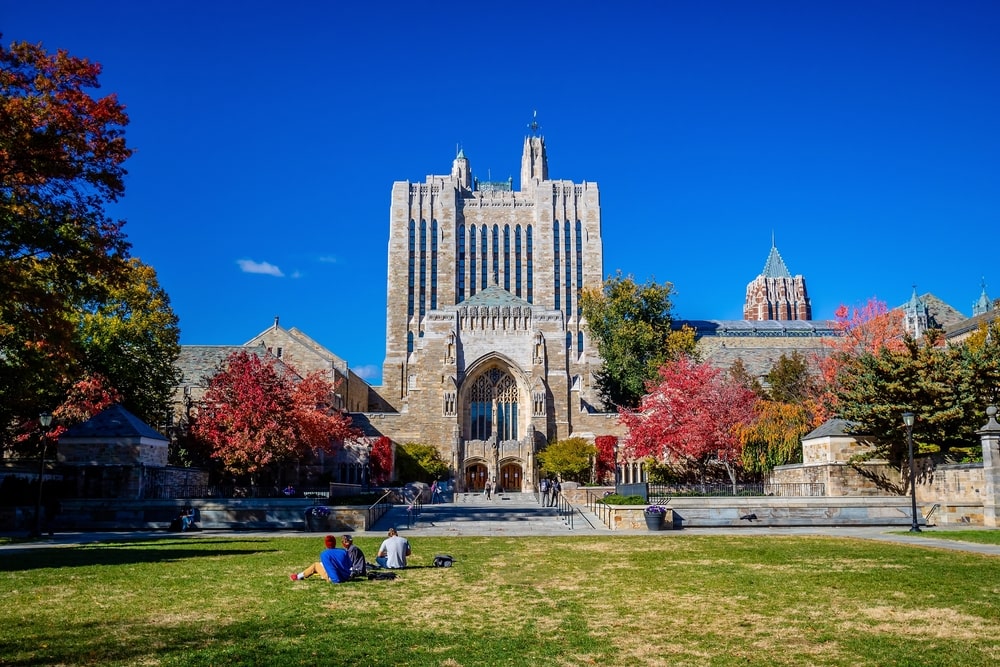
Tier systems help students apply to reach, target, and safety schools.
Graduate-level business schools are typically tiered as M7, T15, T20, and T25.
We developed a tier system for business schools that weighs debt-to-earnings, starting salary vs salary 4-years after graduation, endowment amount per student, and job placement rate.
Tier systems are an alternative to traditional ranking systems. MBA ranking systems have existed since the 1960’s, and no ranking system gets it right. Rather than judging how a college changes positions each year based on minor adjustments to a ranking methodology, schools are sorted into tiers.
Schools within each tier are considered equal. This helps students easily apply to reach, target, and safety schools.
Although we also provide a traditional ranking of MBA programs that focuses primarily on the program’s Return on Investment (ROI), we have developed a parallel tier system for business schools that captures more factors.
We tiered business schools based on what matters to students: high-paying jobs, employability, earnings that outweigh the MBA’s cost, and schools that offer great faculty and resources. To do so, we analyzed data provided by the US Department of Education and each b-school’s official website.
MBA tiers
Business schools are generally placed within one of the following 4 tiers.
- M7 – “Magic or Magnificent 7”
- T15 – “Top 15” (includes the M7 + 8 others)
- T20 – “Top 20” (includes T15 & M7 + 5 others)
- T25 – “Top 25” (includes all schools above + 5 more)
What are M7 business schools?
M7 “Magnificent or Magic 7” business schools can only be described as the cream of the crop. The best of the best. M7 is an elite and informal group of top US business schools that give students access to leading professors, are incredibly competitive, and offer robust academic resources. The M7 business schools are:
- Columbia Business School
- Harvard Business School
- MIT Sloan School of Management
- Northwestern University’s Kellogg School of Management
- Stanford Graduate School of Business
- University of Chicago’s Booth School of Business
- Wharton School at the University of Pennsylvania
Although these schools are often revered as the best, for this report you may see them fall into other categories based on the data analyzed on their MBA class profile and College Scorecard profile. This may be due to low earnings data, low job placement rates, and underperformance in other categories.
The schools we analyzed
We analyzed 31 of the best business schools in the country to create a complete T25 list. These are the schools you’d often see topping the charts on sites like US News, The Economist, Bloomberg, or other reputable MBA raters.
B-schools analyzed in alphabetical order:
- Anderson School of Management at UCLA
- Booth School of Business at the University of Chicago
- Carroll School of Management at Boston College
- Columbia Business School
- Darden School of Business at University of Virginia
- Foster School of Business at University of Washington
- Fuqua School of Business at Duke University
- Goizueta Business School at Emory University
- Haas School of Business, University of California Berkeley
- Harvard Business School
- Jesse H. Jones Graduate School of Business at Rice University
- Kelley School of Business at Indiana University
- Kellogg School of Management at Northwestern University
- Kenan-Flagler Business School at UNC
- Marriott School of Business at BYU
- Marshall School of Business at USC
- McCombs School of Business at The University of Texas, Austin
- McDonough School of Business at Georgetown University
- Olin School of Business at Washington University in St Louis
- Owen Graduate School of Management at Vanderbilt University
- Ross School of Business at University of Michigan, Ann Arbor
- Samuel Curtis Johnson Graduate School of Management at Cornell University
- Scheller College of Business at Georgia Institute of Technology
- Sloan School of Management at MIT
- Stanford Graduate School of Business
- Stern School of Business at NYU
- Tepper School of Business at Carnegie Mellon University
- Terry College of Business at University of Georgia
- Tuck School of Business at Dartmouth College
- Wharton School of the University of Pennsylvania
- Yale School of Management
All the data we used to tier MBA programs is from each school’s MBA class profile, employment report, and the US Department of Education’s College Scorecard. Endowment data is from the NACUBO’s 2023 NCSE Participating Institutions Listed by Fiscal Year Endowment Market Value.
Our complete methodology is below the T25 list.
Helpful terminology
- Job placement rate – The percentage of students who accept job offers by 3 months post-graduation.
- Pay raise percentage – The difference between a student’s starting salary right after finishing an MBA program and their salary 4 years later.
- Endowment per student – The total endowment for a university divided by the entire student body.
- Debt-to-earnings ratio – The average amount of debt a student has upon graduation divided by their earnings 4 years after graduation.
T15 business schools
“T15” refers to the top 15 business schools in the country. These are the best b-schools for a number of reasons. Students have access to the best professors, academia, and resources all while getting the best return on their investment. These programs have high job placement rates, low debt-to-earnings ratios, and are seeing their salaries increase from their 1st to 4th year as MBA holders.
Several of these schools aren’t just the best in the United States, but the best in the world.
Booth School of Business, University of Chicago
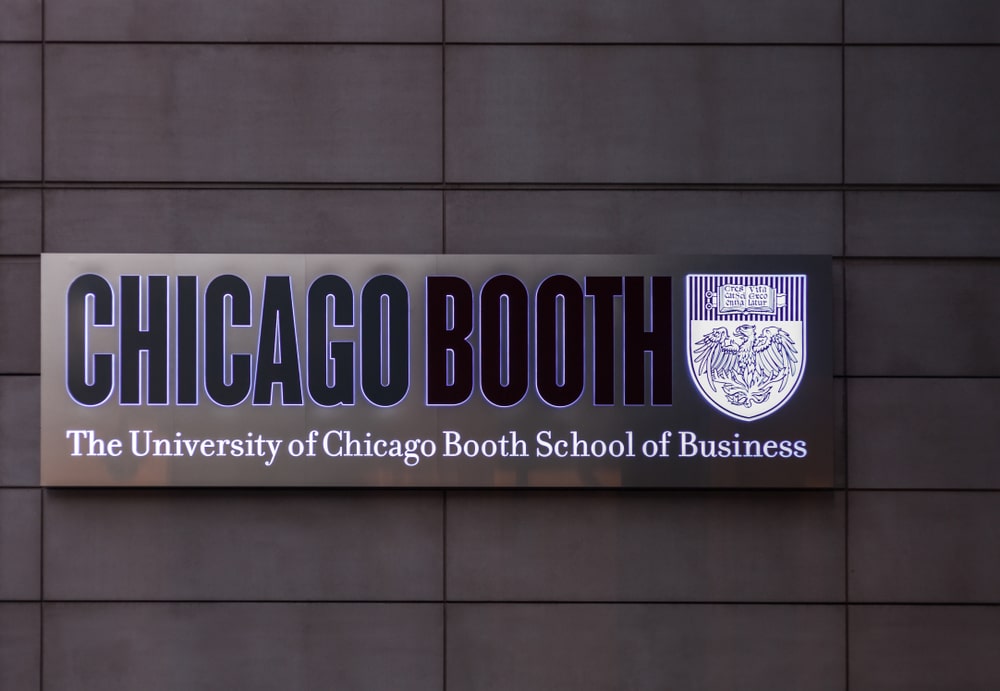
Coming as a surprise to no one, we have the Booth School of Business at the University of Chicago. Graduates see a nearly 30% pay increase from their MBA starting salary to what they’re earning 4 years after graduation. Although the debt is high, they can pay off their loans quickly with their new earnings. making the debt-to-earnings ratio palatable.
- Job placement rate: 94.3% of students accepted job offers 3 months after graduation.
- Pay raise percentage: 28.72%
- Endowment per student: $493,599
- Debt-to-earnings: 0.45
Numbers aside, Booth employs esteemed faculty, including 7 Nobel Prize recipients, the economic advisor to US President Barack Obama, and the author of Freakonomics.
| Key information on Booth | |
|---|---|
| Average annual base salary (first year) | $159,119* |
| Median earnings 4 years post-graduation | $204,813 |
| 2023 endowment | $9.87 billion |
| Student population | 19,996 |
| Average debt | $92,529 |
| Average GMAT score | 729 |
| Program enrollment rate | 6.6% |
| University graduation rate | 95.3% |
*Average of all median salaries by function
Full details on the 2025 full-time MBA class profile, employment report and College Scorecard profile.
Columbia Business School
Columbia Business School is one of six Ivy League business schools, and it is one of the oldest business schools in the world. Although their job placement rate is relatively low, students on average see a 53% boost in salary between their 1st and 4th year post-graduation. This is the pay raise percentage on our list, which gives them a lower debt-to-earnings ratio.
- Job placement rate: 81% of students accepted job offers 3 months after graduation.
- Pay raise percentage: 53.26%
- Endowment per student: $404,597
- Debt-to-earnings: 0.30
Faculty, staff, and alumni are nothing short of excellent. With over 100 years of operation, Columbia has lots of reputable alumni under its belt. They include CEOs of major companies such as Morgan Stanley, Land ‘O Lakes, WeWork, Burger King, Coach, Anheuser-Busch, and more.
| Key information on Columbia | |
|---|---|
| Average annual base salary (first year) | $142,171* |
| Median earnings 4 years post-graduation | $217,887 |
| 2023 endowment | $13.643 billion |
| Student population | 33,720 |
| Average debt | $65,229 |
| Average GMAT score | 730 |
| Program acceptance rate | 6.6% |
| University graduation rate | 95.3% |
*Average of all median salaries by function
Full details on the 2025 full-time MBA class profile, employment report and College Scorecard profile.
Jesse H. Jones Graduate School of Business, Rice University
A big surprise from a university typically sitting much lower on ranking systems is Rice University’s MBA program. It has a near perfect job placement rate, an average of 23.36% salary boost, a very low debt-to-earnings ratio, and more than $863k endowment per student. The Jesse H. Jones Graduate School of Business soars to the top when calculating the degree’s economic value.
- Job placement rate: 99% of students accepted job offers 3 months after graduation.
- Pay raise percentage: 23.36%
- Endowment per student: $863,362
- Debt-to-earnings: 0.26
| Key information on Jones | |
|---|---|
| Average annual base salary (first year) | $130,020 |
| Median earnings 4 years post-graduation | $160,394 |
| 2023 endowment | $7.24 billion |
| Student population | 8,270 |
| Average debt | $41,000 |
| Average GMAT score | 702 |
| Program acceptance rate | Does not disclose |
| University graduation rate | 93% |
Full details on the 2023 full-time MBA employment report and Rice University’s College Scorecard profile.
Sloan School of Management, MIT
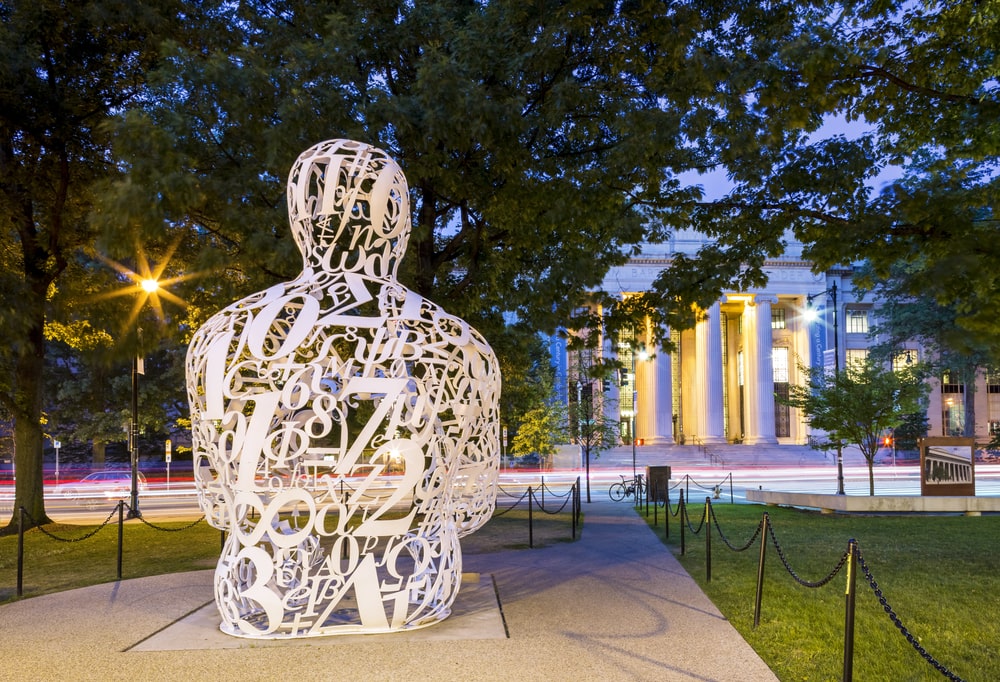
Another T15 school that comes as no surprise is Sloan. MIT is a powerhouse for academia, and their MBA program is no exception. With an average salary raise of over 40% after four years, the lowest debt to earnings ratio on our list, and a $2-million-per-student endowment ratio, it’s no wonder Sloan’s programs are some of the most selective in the world.
- Job placement rate: 94.4% of students accepted job offers 3 months after graduation.
- Pay raise percentage: 41.99%
- Endowment per student: $1,919,702
- Debt-to-earnings: 0.18
| Key information on Sloan | |
|---|---|
| Average annual base salary (first year) | $159,391 |
| Median earnings 4 years post-graduation | $226,312 |
| 2023 endowment | $23.453 billion |
| Student population | 12,217 |
| Average debt | $41,000 |
| Average GMAT score | 729 |
| Program acceptance rate | Does not disclose |
| University graduation rate | 96.9% |
Full details on the 2025 full-time MBA class profile, employment report, and MIT’s College Scorecard profile.
Stanford Graduate School of Business
Stanford is often known as an T15 business school, and the data backs those claims. It has great facilities, an endowment per student amount tipping toward 2 million, and a pay raise percentage of nearly 30%.
Unfortunately, Stanford does slip up by having one of the lowest job placement rates on the list.
- Job placement rate: 82% of students accepted job offers 3 months after graduation.
- Pay raise percentage: 28.45%
- Endowment per student: $1,890,051
- Debt-to-earnings: 0.24
| Key information on Stanford | |
|---|---|
| Average annual base salary (first year) | $189,010 |
| Median earnings 4 years post-graduation | $242,791 |
| 2023 endowment | $36.495 billion |
| Student population | 19,309 |
| Average debt | $57,458 |
| Average GMAT score | 738 |
| Program enrollment rate | 14.4% |
| University graduation rate | 96.50% |
Full details on the 2025 full-time MBA class profile, employment report, and Stanford’s College Scorecard profile.
Tuck School of Business, Dartmouth College
If you crunch the numbers, Tuck shows an exceptional record of accomplishment. Although the university is on the smaller side, their MBA program is mighty. Students see an average of over 33% pay raise between their 1st and 4th years as MBA holders, an endowment-to-student ratio of over a million, and an incredibly low debt-to-earnings ratio.
- Job placement rate: 93% of students accepted job offers 3 months after graduation.
- Pay raise percentage: 33.41%
- Endowment per student: $1,137,243
- Debt-to-earnings: 0.19
| Key information on Tuck | |
|---|---|
| Average annual base salary (first year) | $157,750* |
| Median earnings 4 years post-graduation | $210,453 |
| 2023 endowment | $7.93 billion |
| Student population | 6,973 |
| Average debt | $41,000 |
| Average GMAT score | 726 |
| Early decision admission rate | 17% |
| University graduation rate | 95.3% |
*Average of all median salaries by function
Full details on the 2025 full-time MBA class profile, employment statistics page, and Dartmouth’s College Scorecard profile.
Wharton School, University of Pennsylvania
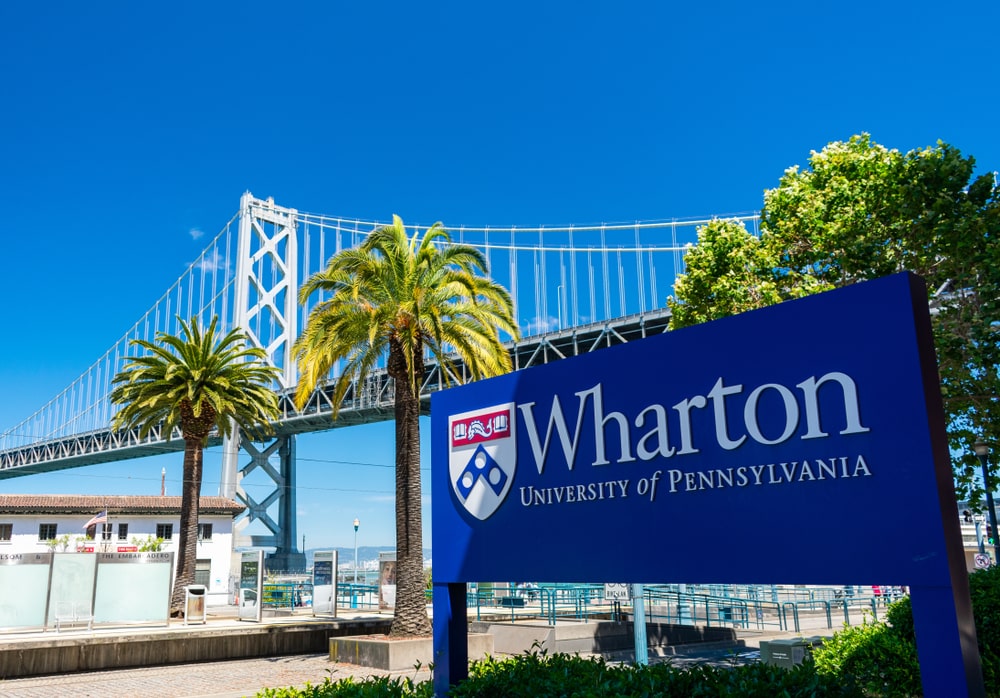
Established in 1881, it is the world’s oldest collegiate business school. Graduates here leave the program with very little debt, and their new earnings provide them with a low debt-to-earnings ratio. They also see a significant pay increase between their 1st and 4th years as MBA holders which puts their salary well over $200K annually.
- Job placement rate: 92.3% of students accepted job offers 3 months after graduation.
- Pay raise percentage: 39.38%
- Endowment per student: $683,747
- Debt-to-earnings: 0.21
Notable alumni include Elon Musk, former U.S. president Donald Trump, and billionaire investor Warren Buffett.
| Key information on Wharton | |
|---|---|
| Average annual base salary (first year) | $158,571* |
| Median earnings 4 years post-graduation | $221,017 |
| 2023 endowment | $20.963 billion |
| Student population | 30,659 |
| Average debt | $45,500 |
| Average GMAT score | 728 |
| Program enrollment rate | 7% |
| University graduation rate | 97.1% |
*Average of all median salaries by function
Full details on the 2025 full-time MBA class profile, MBA career services page, and U Penn’s College Scorecard profile.
Carroll School of Management, Boston College
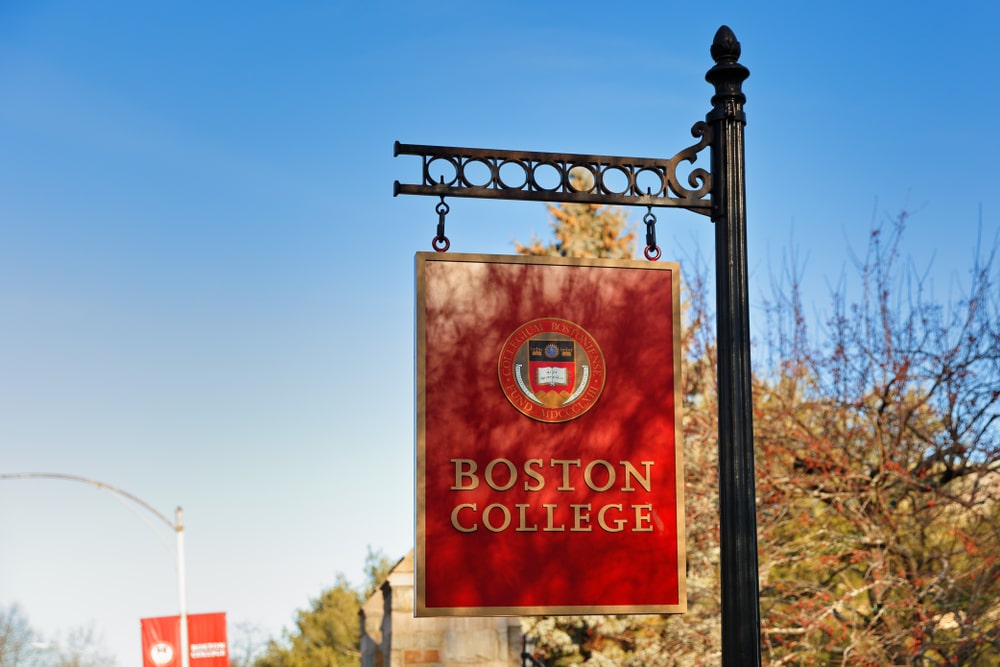
The Carroll School of Management’s MBA graduates see a 94% job placement rate and a pay raise percentage just shy of 20%. Although students don’t see the sky-high salaries of other MBA grads, they’re leaving with considerably less debt which makes this degree a worthwhile endeavor.
- Job placement rate: 94% of students accepted job offers 3 months after graduation.
- Pay raise percentage: 19.10%
- Endowment per student: $213,668
- Debt-to-earnings: 0.28
| Key information on Carroll | |
|---|---|
| Average annual base salary (first year) | $127,516 |
| Median earnings 4 years post-graduation | $151,870 |
| 2023 endowment | $3.461 billion |
| Student population | 16,198 |
| Average debt | $43,037 |
| Average GMAT score | 643 |
| Program acceptance rate | 56% |
| University graduation rate | 94.6% |
Full details on the 2025 full-time MBA class profile, career placement page, and its College Scorecard profile.
Darden School of Business, University of Virginia
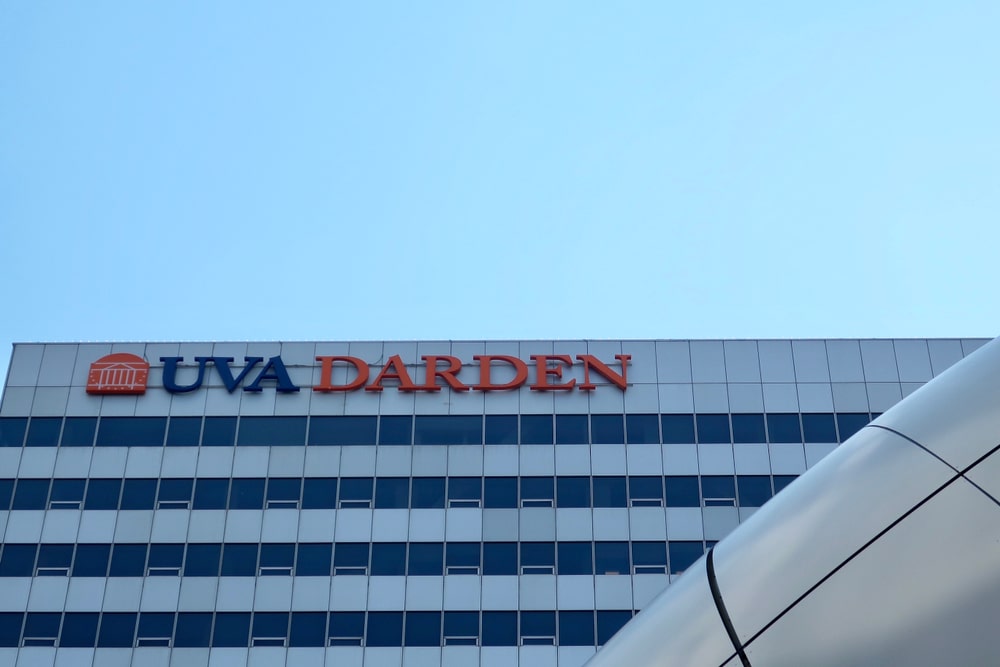
Located in Charlottsville Virginia, graduates from Darden’s business program see a 21% pay increase between their 1st and 4th years post-graduation. The job acceptance rate is just below 95%, and the debt to earnings ratio is something graduates can work with, making this degree incredibly valuable.
- Job placement rate: 94.50% of students accepted job offers 3 months after graduation.
- Pay raise percentage: 21.01%
- Endowment per student: $346,020
- Debt-to-earnings: 0.42
| Key information on Darden | |
|---|---|
| Average annual base salary (first year) | $167,899 |
| Median earnings 4 years post-graduation | $203,181 |
| 2023 endowment | $9.8 billion |
| Student population | 28,322 |
| Average debt | $85,595 |
| Average GMAT score | 716 |
| Program acceptance rate | Does not disclose |
| University graduation rate | 94.50% |
Full details on the 2025 full-time MBA class profile, employment report and College Scorecard profile.
Goizueta Business School, Emory University
When looking at the data, Emory’s Goizueta Business School graduates are definitely being set up for success financially. The debt-to-earnings ratio is low, and students are earning upwards of $160K just 4 years after graduation. But the pay raise percentage between their 1st and 4th years as MBA holders is weak compared to other programs.
- Job placement rate: 96% of students accepted job offers 3 months after graduation.
- Pay raise percentage: 7.83%
- Endowment per student: $673,640
- Debt-to-earnings: 0.37
They have renowned faculty comprising 2 Pulitzer Prize recipients, 2 Nobel Peace Prize recipients, and 3 recipients of the Lasker Award. Over the past 18 years, faculty authors penned 1,900 books.
| Key information on Goizueta | |
|---|---|
| Average annual base salary (first year) | $152,317 |
| Median earnings 4 years post-graduation | $164,249 |
| 2023 endowment | $10.24 billion |
| Student population | 15,201 |
| Average debt | $60,122 |
| Average GMAT score | 709 |
| Program acceptance rate | Does not disclose |
| University graduation rate | 92.2% |
Full details on their 2023 full-time MBA employment report and Emory’s College Scorecard profile.
Haas School of Business, University of California Berkeley
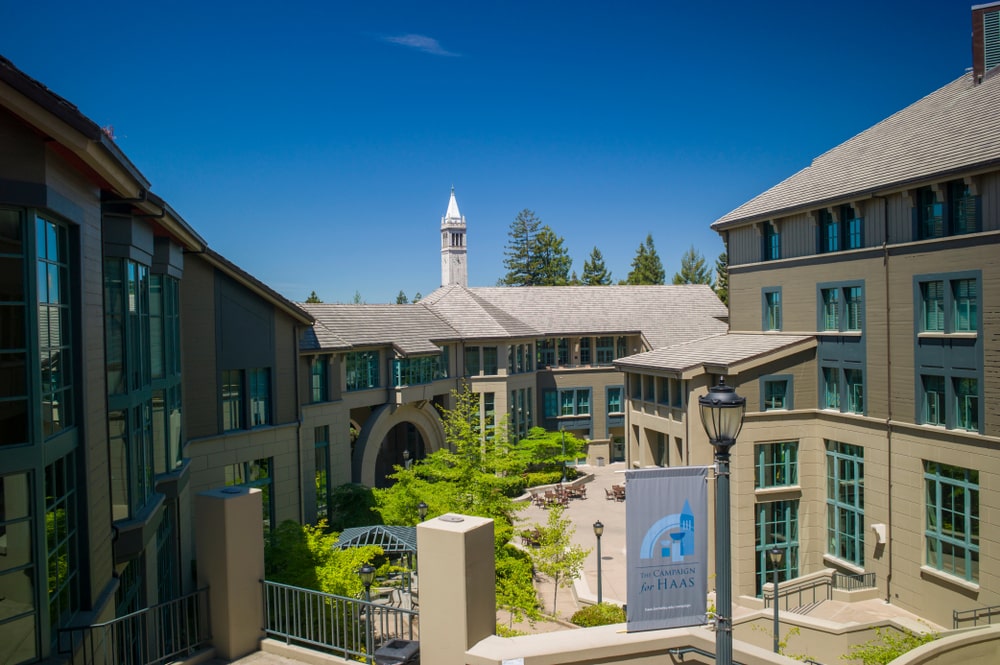
Although the job placement rate slips into the high 80’s, Haas makes up for it with a significate pay raise percentage, which keeps the debt-to-earnings ratio at bay (no pun intended).
- Job placement rate: 88.7% of students accepted job offers 3 months after graduation.
- Pay raise percentage: 39.83%
- Endowment per student: $63,948
- Debt-to-earnings: 0.26
| Key information on Haas | |
|---|---|
| Average annual base salary (first year) | $166,650 |
| Median earnings 4 years post-graduation | $233,028 |
| 2023 endowment | $2.915 billion |
| Student population | 45,584 |
| Average debt | $60,997 |
| Average GMAT score | 733 |
| Program acceptance rate | Does not disclose |
| University graduation rate | 94.4% |
Full details on the 2025 full-time MBA class profile, employment report and the school’s College Scorecard profile.
Kenan-Flagler Business School, UNC
Graduates of the Kenan-Flagler Business School see, on average, a 25% pay raise after 4 years in the field compared to their starting salary with an MBA. They graduate with an average of $90K in debt, making the debt-to-earnings ratio slightly higher.
- Job placement rate: 95% of students accepted job offers 3 months after graduation.
- Pay raise percentage: 25.29%
- Endowment per student: $157,848
- Debt-to-earnings: 0.54
| Key information on Kenan-Flagler | |
|---|---|
| Average annual base salary (first year) | $133,517 |
| Median earnings 4 years post-graduation | $167,290 |
| 2023 endowment | $5.201 billion |
| Student population | 32,943 |
| Average debt | $90,800 |
| Average GMAT score | 696 |
| Program acceptance rate | Does not disclose |
| University graduation rate | 85% |
Full details on the 2025 full-time MBA class profile, full-time employment statistics and the school’s College Scorecard profile.
Marriott School of Business, BYU
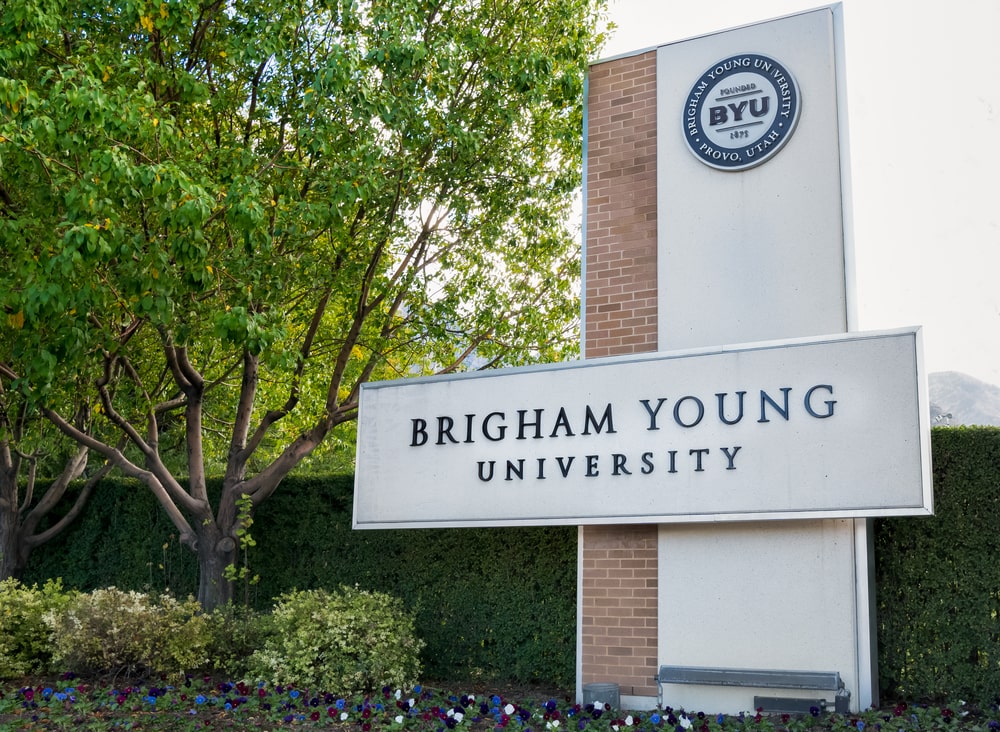
Another program not typically seen this high is Marriot School of Business at BYU. This university is privately owned by the Church of Jesus Christ of Latter-Day Saints. The pay raise percentage is significant, and students only leave with an average of $41,000 in debt. On average, students see a 30% pay raise after 4 years from their starting post-MBA salary. But just like Haas, we see a lower job placement rate than others.
- Job placement rate: 90% of students accepted job offers 3 months after graduation.
- Pay raise percentage: 30.67%
- Endowment per student: $68,324
- Debt-to-earnings: 0.27
| Key information on Marriott | |
|---|---|
| Average annual base salary (first year) | $117,740* |
| Median earnings 4 years post-graduation | $153,852 |
| 2023 endowment | $2.78 million |
| Student population | 40,668 |
| Average debt | $41,000 |
| Average GMAT score | 678 |
| Program acceptance rate | Does not disclose |
| University graduation rate | 85% |
*Average of all median salaries by function
Full details on the 2025 full-time MBA class profile, full-time employment report and the school’s College Scorecard profile.
Terry College of Business, University of Georgia
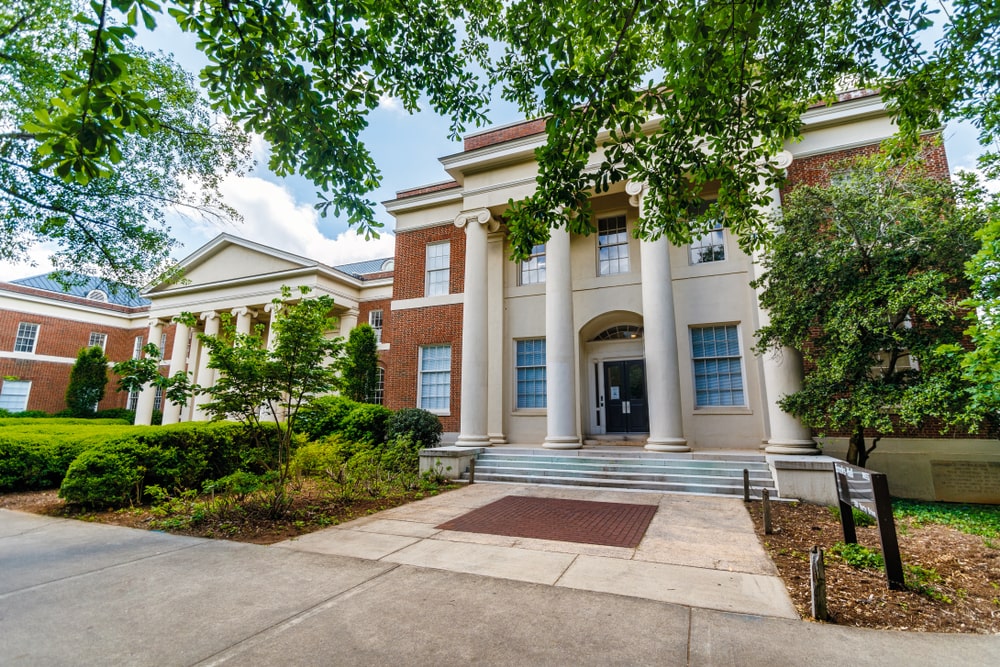
With a near perfect job placement rate, the Terry College of Business not only churns out graduates who are employable, but MBA graduates only see an 18% pay increase after 4 years. Students leave with slightly higher debt, making the debt-to-earnings ratio higher than other T15 schools.
- Job placement rate: 98% of students accepted job offers 3 months after graduation.
- Pay raise percentage: 18.66%
- Endowment per student: $41,811
- Debt-to-earnings: 0.44
| Key information on Terry | |
|---|---|
| Average annual base salary (first year) | $169,698 |
| Median earnings 4 years after graduation | $217,138 |
| 2023 endowment | $13.7 billion |
| Student population | 26,624 |
| Average debt | $172,164 |
| Average GMAT score | 731 |
| Program acceptance rate | Does not disclose |
| University graduation rate | 94.6% |
Full details can be found on the 2025 full-time MBA class profile, admissions reporting standards report, and its College Scorecard profile.
Yale School of Management
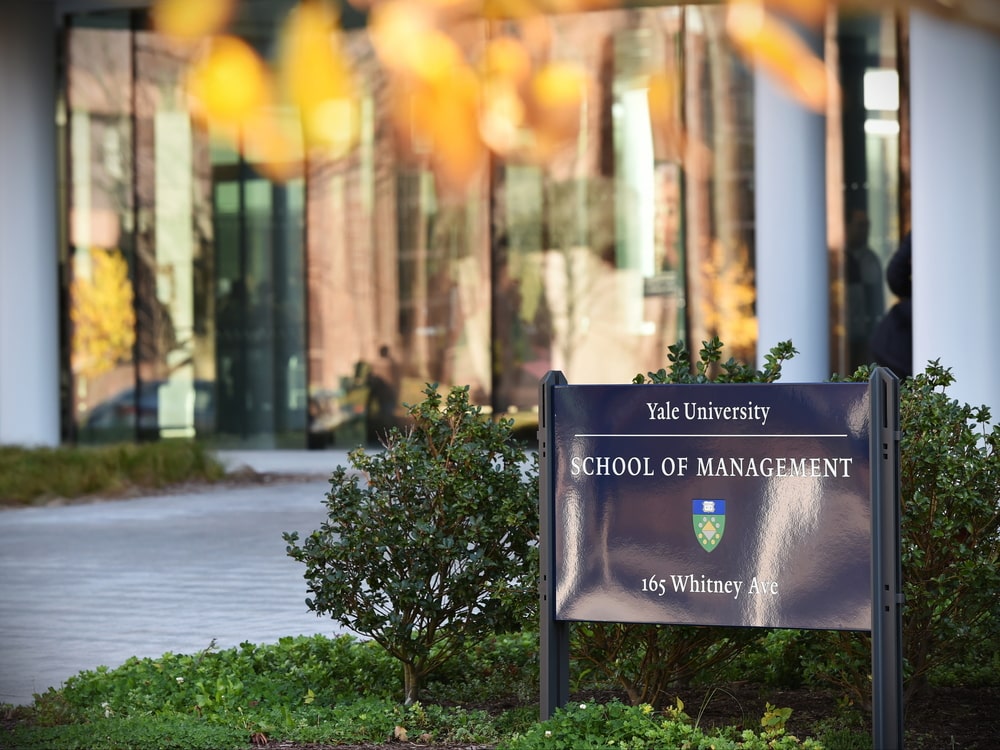
Yale is an Ivy League school, making it one of the most prestigious colleges in the world. Ivy Leagues are often associated with academic excellence, selectivity in admissions, and social elitism. An astounding $3 million per student endowment amount, pay raise increase of nearly 20%, and a fairly low 0.32 debt-t0-earnings ratio an MBA from Yale is worth it.
- Job placement rate: 93.3% of students accepted job offers 3 months after graduation.
- Pay raise percentage: 16.86%
- Endowment per student: $3,006,049
- Debt-to-earnings: 0.32
| Additional information on Yale | |
|---|---|
| Average annual base salary (first year) | $160,110 |
| Median earnings 4 years after graduation | $187,097 |
| 2023 endowment | $40.747 billion |
| Student population | 13,555 |
| Average debt | $59,278 |
| Average GMAT score | 720 |
| Program acceptance rate | Does not disclose |
| University graduation rate | 97.5% |
Full details on the 2025 full-time MBA class profile, employment report, and its College Scorecard profile.
T20 business schools
T20, or the top 20 business schools, are still some of the best in the nation. Although they’re not top players, these schools are nothing to sniff at. These programs are still wildly competitive to get into, have reputable faculty, and rigorous academia, but they have slipped in several of the categories compared to the programs above.
These are in alphabetical order.
Anderson School of Management at UCLA
Although the program is remarkable enough to make the T25 list (and have a 7.8% acceptance rate), its earning power and economic value doesn’t compete well enough with other programs. Students leave with nearly $100K in debt and only have a 91.9% job placement rate.
Although they make great money 4-years after graduation, the debt is higher than most, and their endowment per student amount is smaller.
- Job placement rate: 91.9% accepted job offers within 3 months after graduation.
- Pay raise percentage: 26.91%
- Endowment per student: $81,539
- Debt-to-earnings: 0.52
| Key information on Anderson | |
|---|---|
| Average annual base salary (first year) | $146,727 |
| Median earnings 4 years after graduation | $186,217 |
| 2023 endowment | $3.873 billion |
| Student population | 47,499 |
| Average debt | $97,335 |
| Average GMAT score | 710 |
| Program acceptance rate | 7.8% |
| University graduation rate | 92.7% |
Full details can be found on the 2025 full-time MBA class profile, employment report, and its College Scorecard profile.
Fuqua School of Business at Duke University
Famous for its athletic rivalries and collegiate sports teams, Duke University is a top contender for academia and research. The Duke University Press publishes about 120 new books each year and over 30 scholarly journals.
The MBA program has a 92% job placement rate, but students leave with upwards of $80K in debt. Although they’re able to pay it off quickly with their salaries, the debt-t0-earnings ratio was higher than the T15 schools, and neither the pay raise percentage nor endowment-per-student ratio were enough to counterbalance it.
- Job placement rate: 92% of students accepted job offers 3 months after graduation.
- Pay raise percentage: 19.67%
- Endowment per student: $730,574
- Debt-to-earnings: 0.45
| Key information on Fuqua | |
|---|---|
| Average annual base salary (first year) | $151,000* |
| Median earnings 4 years after graduation | $180,698 |
| 2023 endowment | $13.238 billion |
| Student population | 18,120 |
| Average debt | $80,630 |
| Average GMAT score | 715 |
| Program acceptance rate | Does not disclose |
| University graduation rate | 95.20% |
*Average of all median salaries by function
Full details can be found on the 2025 full-time MBA class profile, employment report, and its College Scorecard profile.
Kellogg School of Management at Northwestern University
Although graduates of Kellogg see a great start and 4-year post-graduation salaries, they leave with a lot of debt. On average, Kellogg School grads have $172,164 in debt from pursuing their MBA, and the job placement rate is just above 90%.
- Job placement rate: 91.9% of students accepted job offers 3 months after graduation.
- Pay raise percentage: 27.96%
- Endowment per student: $514,573
- Debt-to-earnings: 0.79
| Key information on Kellogg | |
|---|---|
| Average annual base salary (first year) | $169,698 |
| Median earnings 4 years after graduation | $217,138 |
| 2023 endowment | $13.7 billion |
| Student population | 26,624 |
| Average debt | $172,164 |
| Average GMAT score | 731 |
| Program acceptance rate | Does not disclose |
| University graduation rate | 94.6% |
Full details can be found on the 2025 full-time MBA class profile, admissions reporting standards report, and its College Scorecard profile.
Marshall School of Business, USC
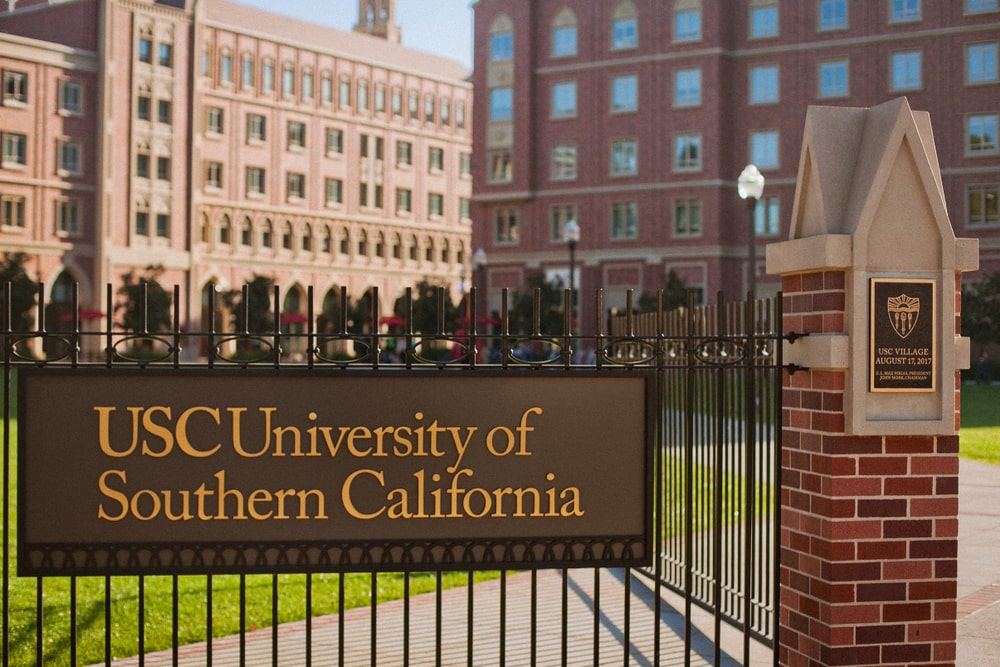
USC Marshall School of Business is the business school at University of Southern California located in Los Angeles. Marshall is home to a world-class faculty of leading scholarly researchers and noted practitioners. Students only see an average of 6% rise after 4 years and leave with $77K in debt.
- Job placement rate: 97% of students accepted job offers 3 months after graduation.
- Pay raise percentage: 6.81%
- Endowment per student: $151,393
- Debt-to-earnings: 0.48
| Key information on Marshall | |
|---|---|
| Average annual base salary (first year) | $150,314 |
| Median earnings 4 years after graduation | $160,552 |
| 2023 endowment | $7.930 billion |
| Student population | 52,380 |
| Average debt | $77,686 |
| Average GMAT score | 722 |
| Program acceptance rate | 23% |
| University graduation rate | 92.6% |
Full details can be found on the 2025 full-time MBA class profile, employment report, and its College Scorecard profile.
Ross School of Business, University of Michigan-Ann Arbor
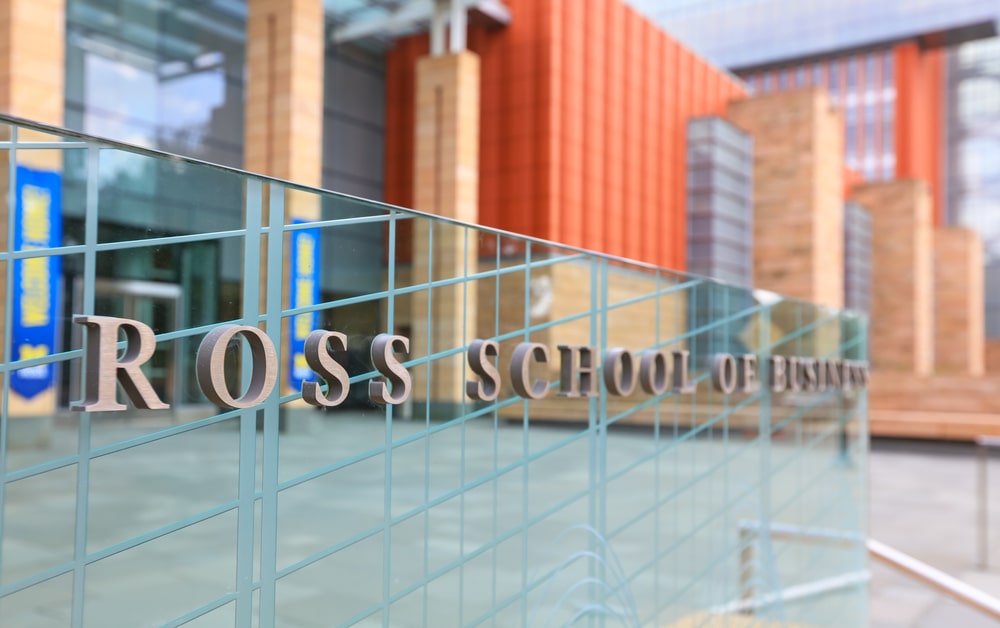
Originally known as the School of Business Administration, the Ross School of Business has been in operation for 100 years, and in 2015 it was ranked as one of the wealthiest business schools in the country. Graduates don’t see much of an increase in pay 4 years after getting their MBA, but they have a low debt-to-earnings ratio and are likely to find a job by 3 months post-graduation.
- Job placement rate: 95.9% of students received job offers 3 months after graduation.
- Pay raise percentage: 6.51%
- Endowment per student: $357,505
- Debt-to-earnings: 0.33
| Key information on Ross | |
|---|---|
| Average annual base salary (first year) | $162,946 |
| Median earnings 4 years after graduation | $173,548 |
| 2023 endowment | $17.876 billion |
| Student population | 50,002 |
| Average debt | $56,932 |
| Average GMAT score | 719 |
| Program acceptance rate | Does not disclose |
| University graduation rate | 93.9% |
Full details can be found on the 2025 full-time MBA class profile and its College Scorecard profile.
T25 business schools
T25 is a term used to refer to the top 25 universities. It includes all the universities above plus an additional 5. These schools still offer excellent academic rigor, esteemed faculty, and scholarship opportunities, but you start to see that the debt-to-earnings ratio and pay raises aren’t as impressive.
These are in alphabetical order.
Kelley School of Business at Indiana University
Kelley graduates see a great job placement rate and low debt-to-earnings ratio, but they don’t see a pay raise. In fact, graduates got 4.64% less after 4 years compared to the amount the school says they start with, on average. This, along with a lower endowment per student amount, kept this MBA program in the T25 zone.
- Job placement rate: 97% of students accepted job offers 3 months after graduation.
- Pay raise percentage: -4.64%
- Endowment per student: $38,198
- Debt-to-earnings: 0.29
| Key information on Kelley | |
|---|---|
| Average annual base salary (first year) | $147,150* |
| Median earnings 4 years after graduation | $140,329 |
| 2023 endowment | $1.779 billion |
| Student population | 46,573 |
| Average debt | $41,000 |
| Average GMAT score | 685 |
| Program acceptance rate | Does not disclose |
| University graduation rate | 79.60% |
*Average of all median salaries by function
Full details can be found on the 2025 full-time MBA class profile, employment report, and its College Scorecard profile.
Owen Graduate School of Management, Vanderbilt University
Vanderbilt is another great institution for an MBA. Its student population is modest, so the endowment per student amount is upwards of $600K. They have a great job placement rate, but unfortunately students leave with over $90K in debt, and don’t see much of a change in their salaries.
- Job placement rate: 96% accepted job offers within 3 months after graduation.
- Pay raise percentage: 1.25%
- Endowment per student: $674,561
- Debt-to-earnings: 0.58
| Key information on Owen | |
|---|---|
| Average annual base salary (first year) | $154,052 |
| Median earnings 4 years after graduation | $155,974 |
| 2023 endowment | $9.684 billion |
| Student population | 14,356 |
| Average debt | $90,787 |
| Average GMAT score | 687 |
| Program acceptance rate | Does not disclose |
| University graduation rate | 93.4% |
Full details can be found on the 2025 full-time MBA class profile, employment report, and its College Scorecard profile.
Samuel Curtis Johnson Graduate School of Management, Cornell University
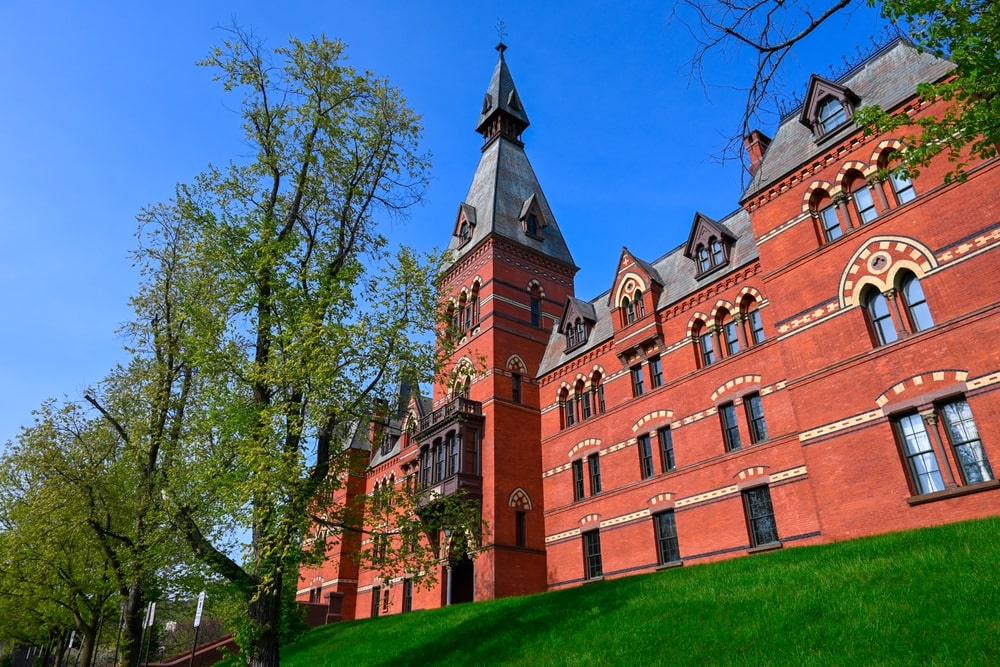
Cornell is a private Ivy League research university. Its most famous alumnus is Andy Bernard from the NBC television show The Office, and it has one of the largest endowments in the nation. The pay raise percentage hovers around 15%, but students leave with a staggering $129K in debt on average.
- Job placement rate: 93% accepted job offers within 3 months after graduation.
- Pay raise percentage: 15.32%
- Endowment per student: $409,867
- Debt-to-earnings: 0.69
| Key information on Johnson | |
|---|---|
| Average annual base salary (first year) | $162,808 |
| Median earnings 4 years after graduation | $187,757 |
| 2023 endowment | $10.036 billion |
| Student population | 24,486 |
| Average debt | $129,912 |
| Average GMAT score | 710 |
| Program acceptance rate | Does not disclose |
| University graduation rate | 95.6% |
Full details can be found on the 2025 full-time MBA class profile, employment report, and its College Scorecard profile.
Scheller College of Business, Georgia Institute of Technology
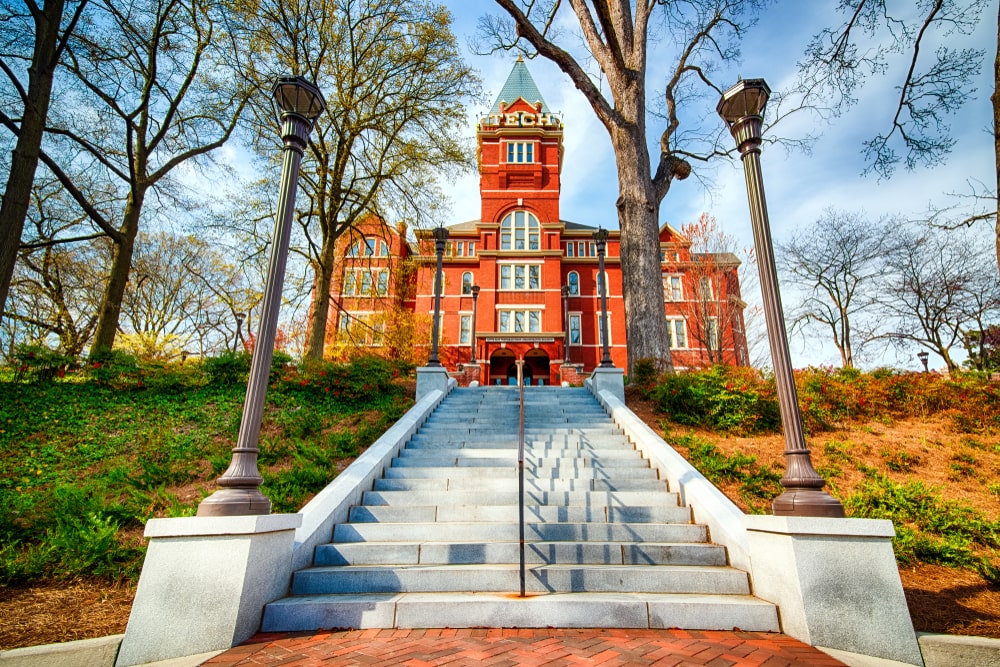
Scheller’s MBA program consistently ranks as one of the best in the nation. It has a great job placement rate for MBA graduates, but the pay raise percentage is less than one percent and students leave with nearly $80K in debt.
- Job placement rate: 96% accepted job offers within 3 months after graduation.
- Pay raise percentage: 0.26%
- Endowment per student: $61,669
- Debt-to-earnings: 0.51
| Key information on Scheller | |
|---|---|
| Average annual base salary (first year) | $154,679 |
| Median earnings 4 years after graduation | $155,081 |
| 2023 endowment | $2.947 billion |
| Student population | 47,787 |
| Average debt | $79,015 |
| Average GMAT score | 694 |
| Program acceptance rate | Does not disclose |
| University graduation rate | 91.1% |
Full details can be found on the 2025 full-time MBA class profile, employment report, and its College Scorecard profile.
Stern School of Business, NYU
New York University is a private research university nestled in the heart of New York City. It offers many world class programs in the arts, business, and engineering. Although it’s MBA grads have a great starting salary that shows a steady increase by 4 years, they also leave with more than 100K in debt. It’s debt-to-earning ratio is higher than others, and it’s endowment per student is a fraction of what other schools offer.
| Key information on Stern | |
|---|---|
| Average annual base salary (first year) | $168,182 |
| Median earnings 4 years after graduation | $189,625 |
| 2023 endowment | $5.877 billion |
| Student population | 60,326 |
| Average debt | $102,131 |
| Average GMAT score | 732 |
| Program acceptance rate | 32.30% |
| University graduation rate | 86.40% |
Full details can be found on the 2025 full-time MBA class profile, employment report, and its College Scorecard profile.
Where’s Harvard?
If you’re wondering where Harvard Business School sits, it unfortunately doesn’t. When looking at the data, Harvard not only had an 80% job placement rate (one of the lowest ones we analyzed), it also had the worst pay raise percentage.
In fact, the starting salary for a Harvard MBA graduate according to their website is $165,625 (when averaging all the median salaries by function), but College Scorecard’s earnings data shows Harvard graduates only earn $107,513 4 years after graduation. This is a -35.09% decrease and the lowest 4-year earning average of all the MBA graduates.
To put this in perspective, graduates of an MBA program from Harvard can expect to make the same salaries as MBA grads from CUNY Graduate School and Sacramento State University.
Although Harvard has a remarkably low debt-to-earnings ratio of 0.19, and the largest endowment of any institution, it wasn’t enough to combat the terrible earning power and job placement rate their MBA has, and it fell to position 27.
Tier system methodology
To devise a tier system, we analyzed data that shows what a school’s MBA program is doing for their graduates, and not what students need to get in (high GMAT scores, insane GPAs, etc.).
MBA Tier Forumula Breakdown
PieChart Data
enter in the editor the amount of columns you want to show
and their values.
Job placement rates | 35%
All job placement data is publicly available on each b-school’s website. We used the percentage of students who accepted job offers 3 months after graduation, NOT how many received offers. This is 35% of the formula.
Pay raise percentage | 35%
Earnings data is provided by both the school and the US Department of Education. Year 1 earnings data is available on each b-school’s website and earning trends 4 years after graduation are from College Scorecard. Then we calculated the percent increase between their 1st and 4th year salaries as MBA holders. This is 35% of the formula.
Debt-to-earnings ratio | 20%
This number is calculated by taking the average debt students leave with upon graduation and dividing by the earnings 4-years after graduation. Data for this calculation is from the US Department of Education’s College Scorecard. This is 20% of the formula.
Endowment per student | 10%
Endowments can be used for scholarship programs, faculty positions, research endeavors and facility enhancements. This gives us a numerical value on which schools are pumping the most money into teaching, financial aid, research, and public service missions. We looked at the total endowment amount and divided it by the student population to get the endowment per student.
We did this so smaller schools don’t get dinged for not having larger endowment sizes, and schools with massive endowment sizes don’t look high and mighty when they have large student bodies. This is 10% of the formula.
Now, the math.
First, each metric (job placement rates, endowment per student, etc.) was located then turned into a whole number. The whole number was assigned by placing a value of 1-31 (31 being the best and 1 being the worst) of each b-school’s individual metric.
For example, if one school had a job placement rate of 100% it would be assigned the highest value, 31. If the next school had a job placement rate of 99% it would be assigned the second highest value, 30. All values started at 31 (the total number of schools we analyzed) and dropped down from there. If two schools had the same value both were assigned the same whole number.
Next, job placement rates, pay raise percentages, debt-to-earnings ratios, and endowment amounts per student were all turned into whole numbers so they could be placed into this formula:
(Debt-to earnings x 0.2) + (Job placement rate x 0.35) + (Salary raise percentage x 0.35) + (Endowment per student x 0.1) = Tier Placement
Although it may appear as though programs lower on the list aren’t as valuable – we need to remember that there are hundreds of MBA programs these 25 consistently outrank. All these schools have high quality academic programs, esteemed faculty, and reputable facilities (especially you, Harvard).
These MBA programs are placed here because they are getting graduates jobs (well-paid ones at that), not leaving them with heaps of debt, and have faculty, facilities, and research opportunities needed for students to become well-rounded MBA-ers.
www.degreechoices.com is an advertising-supported site. Featured or trusted partner programs and all school search, finder, or match results are for schools that compensate us. This compensation does not influence our school rankings, resource guides, or other editorially-independent information published on this site.





